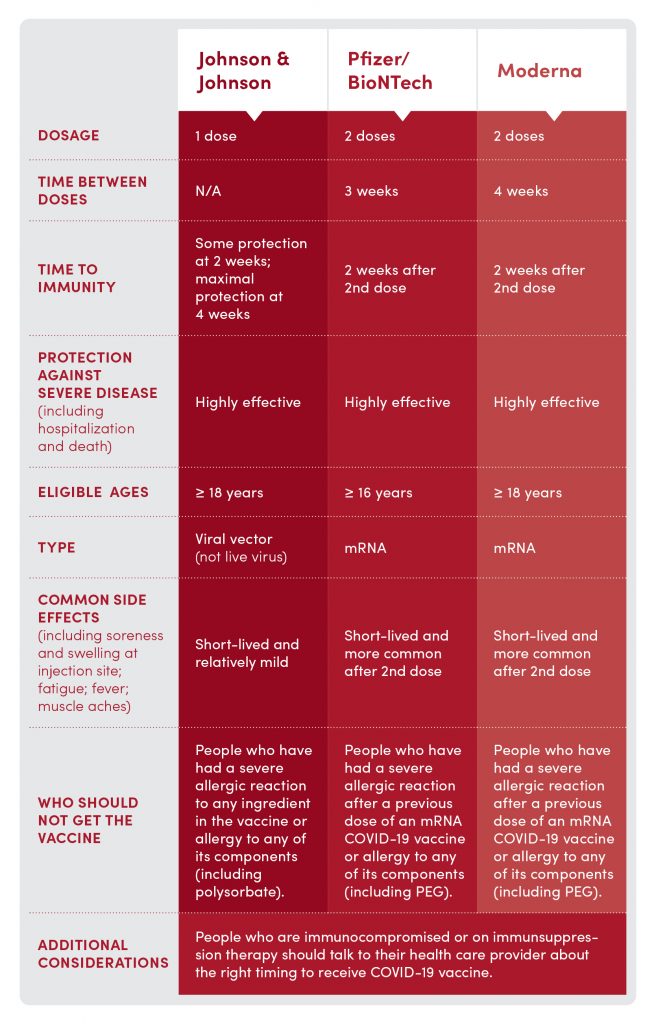With three COVID-19 vaccines available in the U.S.—Pfizer-BioNTech, Moderna and Johnson & Johnson—selecting one might seem difficult, if you’re given a choice. But infectious disease specialist Sankar Swaminathan, MD, says the decision is easy: “The best COVID-19 vaccine is the first one that becomes available to you.”
That’s because all three are very effective at preventing severe illness from COVID-19, including hospitalization and death. And the longer you are unvaccinated, the more you’re at risk for becoming infected and possibly seriously ill from COVID-19.
While all the COVID-19 vaccines authorized for use in the U.S. offer substantial protection, differences between them have been reported. In large clinical trials, the Pfizer-BioNTech and Moderna vaccines were each about 95% effective at preventing any type of COVID-19 illness, causing symptoms ranging from sniffles to death. In U.S. clinical trials, the Johnson & Johnson vaccine was reported as 85% effective at preventing severe disease and 72% effective at preventing moderate and severe disease. The vaccine was 66% effective overall in clinical trials held in the U.S., South African and Brazil.
Even though the numbers vary, the effectiveness of each vaccine cannot be compared head to head. That’s because of differences in how and when each clinical trial was done. One change that could have made a big impact was the emergence of certain virus variants—versions of the coronavirus with specific mutations that change its genetic code.
The Johnson & Johnson clinical trials took place months after the others. By that time, virus variants were circulating in different parts of the globe. Some variants partially evade COVID-19 vaccines, perhaps accounting for the lower efficacy rates that have been reported. It’s possible that, if all three COVID-19 vaccines were tested in the same way and at the same time, their efficacy rates would be similar. However, at this point, we don’t know.
The good news is that data from initial studies indicate that the three vaccines still work well against today’s most common variants. In the future, it’s possible that new variants could emerge that lower a vaccine’s effectiveness. New technologies that have made it easier and faster to create vaccines could help overcome this potential problem. Similar to an annual flu shot, we may need COVID-19 vaccine booster shots to protect against new virus variants.
“Getting any vaccine as soon as you can and vaccinating a lot of people quickly will be the best way to protect everyone,” Swaminathan says. “That will help build herd immunity, slow down the virus variants, and get life back to normal.”

